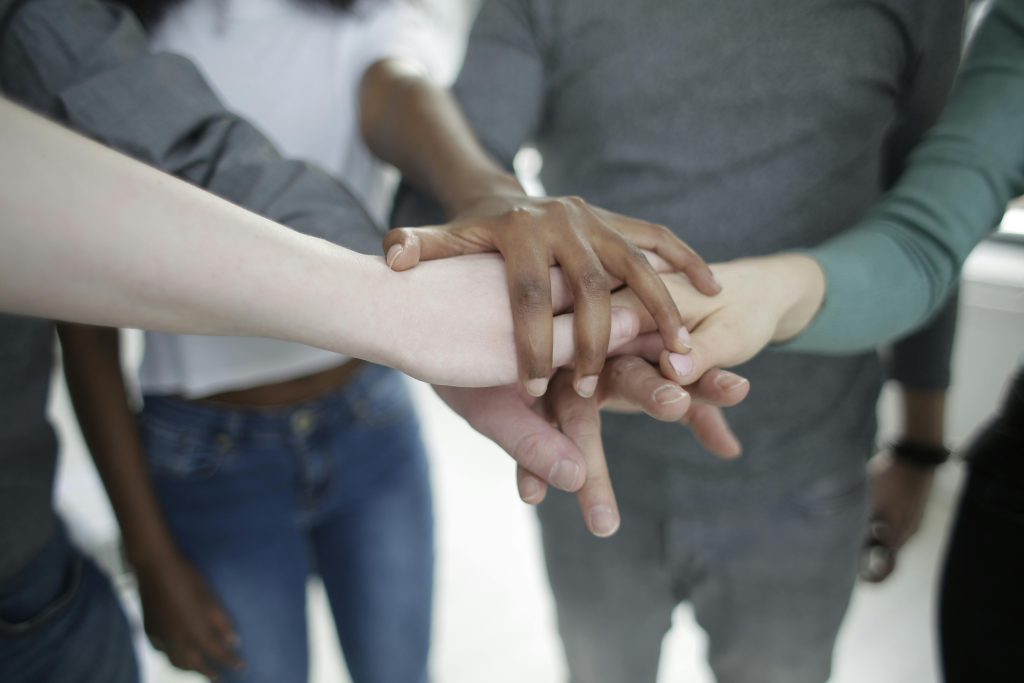Every conversation I’ve had lately, I’ve started by sidetracking to ask: How are you, really? And every answer has been the same: “I’m exhausted. I’m so sad. I’m worried about the world.”
In the thick of ongoing, unyielding fights against the pandemic and injustice, our fatigue and our grief are not just a matter of too much work, but also a reflection of the energy required to navigate a time marked by isolation, discord, and profound loss.
Simply asking the question is an essential act that many of us — immersed in our mission-driven work and advocacy — forget to do. In truth, it is not a sidetrack at all but a concern at the center of our sustained efforts.
Once we’ve asked the question, of others and ourselves, the next essential step is to intentionally create a collective space to grieve, breathe, and rest. Indeed, the news of lives lost and torn apart during this pandemic — combined with blatant violations of civil rights, ethics, and public health norms — take a toll. But that toll is more pronounced when we don’t have an opportunity to come together, mourn, and rest, especially when we realize, as Marissa Evans recently described in the Atlantic, that “grief in this country has always had an equity problem.”
“Caring for myself is not self-indulgence, it is self-preservation, and that is an act of political warfare.” Audre Lorde’s quote reminds us that grieving and restorative rest are as essential to our health equity work as the passion that drives us.
At HealthBegins, we’ve tried to create some space for restoration in-house through facilitated dialogues and guided meditation sessions for our staff during the work day, as well as access to mental health counseling outside of work. And we’ve teamed up with Varun Soni, Dean of Religious Life at the University of Southern California, to offer a collective space to breathe, grieve, and rest, this Wednesday at 1 p.m. PT / 4 p.m. ET — to which I warmly invite you.
Here are some other collective spaces and resources for restorative rest that we’ve come across:
- The Nap Ministry, created by performance artist Tricia Hersey, names sleep deprivation as a racial and social justice issue and curates experiences in “rest as a radical tool for community healing.”
- Medical residents are calling on their residency programs and hospitals to create more collective opportunities to grieve.
- The UK end-of-life charity Marie Curie is campaigning for a national day to reflect, grieve, and remember all those we’ve lost since the pandemic began.
How is your team, organization, or institution creating a space for collective mourning and restorative rest? Please share with us. And, if you can, please feel free to join us on Wednesday at 1 p.m. PT/ 4 p.m. ET for a collective moment to grieve, breathe, and rest.
Meanwhile, we are thinking of you, we grieve with you, and we are grateful, as always, to be your colleagues in the broader movement for health equity.
Best,

Rishi Manchanda
Featured Content
Aligning Our Organizational Structure with Our Values
With our new B Corp Certification, HealthBegins has now joined a global network of companies that see business as a force for good and can share tools and practices to help us improve.
5 Principles and Practices to Sustain Gender-Affirming Care in Uncertain Times
With the onslaught of federal threats to transgender and nonbinary people, health care has a critical role to play to uphold standards of care, ensure access to essential services, advocate for evidence-based medicine, and protect patients and providers.
Strengthening Health Equity Investments with Human-Centered Stakeholder Engagement
Understanding and aligning with what value means to your stakeholders—especially those who make investment decisions—is crucial when making the business case for health equity investments.



